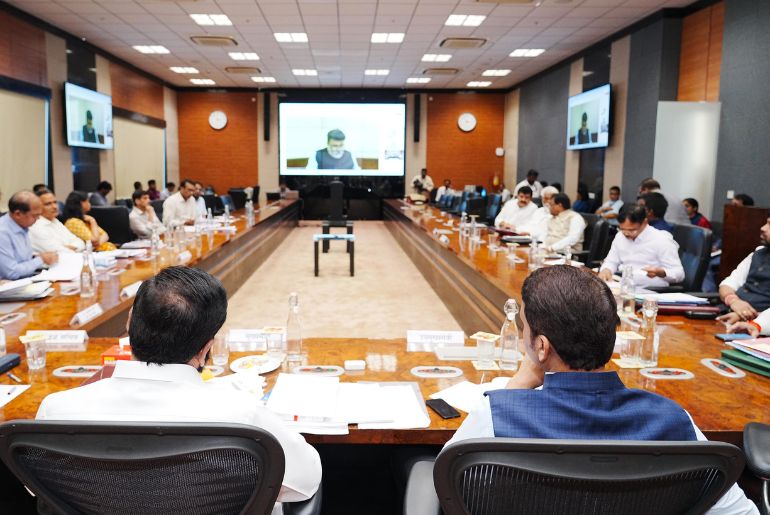During a recent cabinet subcommittee meeting, the Maharashtra government approved ₹1.20 lakh crore in investments in an effort to establish the state as a center for advanced manufacturing and technologies which is ready for the future. Maharashtra’s deputy chief minister, Devendra Fadnavis, posted on X. Electric vehicles (EVs), semiconductors, and hybrid technology are among the industries that the investments span.
One of the biggest investments will be made by Tower Semiconductor and the Adani Group, who will work together to build a semiconductor manufacturing plant in Taloja MIDC in Panvel.
According to Fadnavis, the project is valued at ₹83,947 crore, or roughly $10 billion USD. The investment will be carried out in two stages: the first phase will cost ₹58,763 crore and have a monthly production capacity of 40,000 wafers; the second phase will cost ₹25,184 crore and increase production to 80,000 wafers per month. This will be utilized for the production of semiconductors and analog/mixed signals. It is anticipated to create over 5,000 jobs and improve India’s standing in the global semiconductor supply chain.
Skoda Auto Volkswagen India, too, has earmarked a ₹15,000 crore investment to ramp up EV and hybrid car manufacturing at its Chakan facility in Pune.
Toyota Kirloskar has also committed an investment of ₹21,273 crore at the AURIC industrial city in Chhatrapati Sambhajinagar.
The industrial basis of the state is broad and includes textiles, pharmaceuticals, IT, and manufacturing. Maharashtra is an attractive destination for both global and domestic investment due to its strategic position, talented workforce, and well-developed infrastructure. Its role as a key contributor to India’s economic growth is further cemented by its industrial policy and special economic zones.
As the country’s most industrialized state, Maharashtra contributes significantly to the national GDP. Mumbai, its capital, is India’s financial hub and home to major corporations and the stock exchange.


